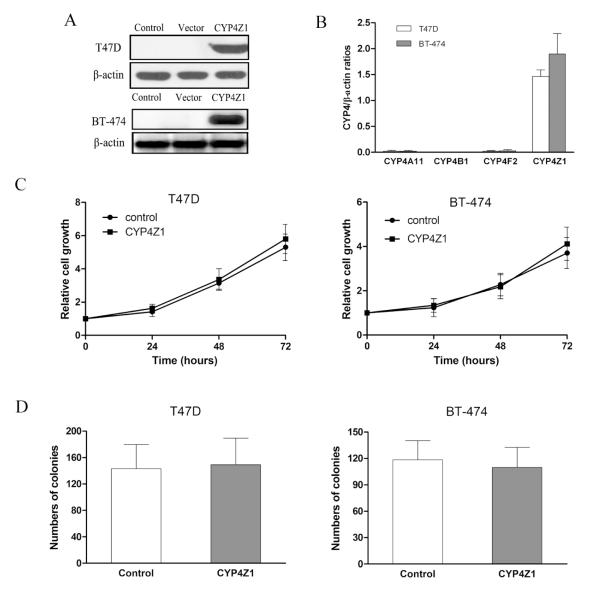Fig. 1.
Stable expression of CYP4Z1 in human breast cancer cells does not affect cell proliferation and colony formation in vitro. (A) CYP4Z1 protein expression in T47D and BT-474 cells transfected or untransfected with CYP4Z1 was determined by Western blot. (B)The mRNA levels of CYP4A11, 4F2, 4B1 and 4Z1 in T47D and BT-474 cells transfected with CYP4Z1 were determined by quantitative real-time polymerase chain reaction (qPCR). (C) CYP4Z1-transfected T47D (T47D-CYP4Z1) and BT-474 (BT-474-CYP4Z1) cells and vector-transfected cells (vector control) at 4×103/well were plated into 96-well plates and incubated for 24, 48 and 72 h. Cell proliferation was determined by MTS. (D) CYP4Z1 or vector-transfected cells were added to a base layer of 0.6% methylcellulose supplemented with 10% fetal bovine serum (FBS) and were seeded onto 6-well plates at a density of 1-2.5×104 cells per well in triplicate. After 7-10 d, anchorage-independent colonies were counted using a microscope. Results are shown as mean ± S.D. from 3 independent experiments (n=3).

